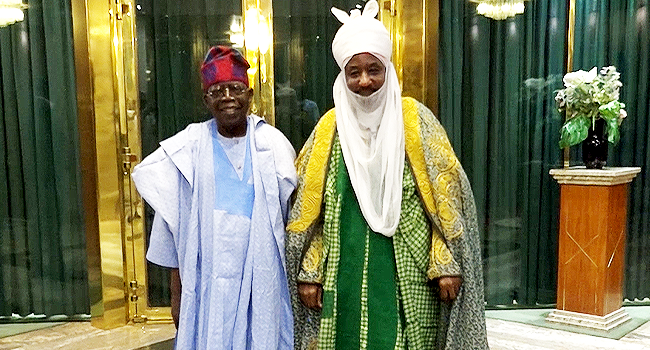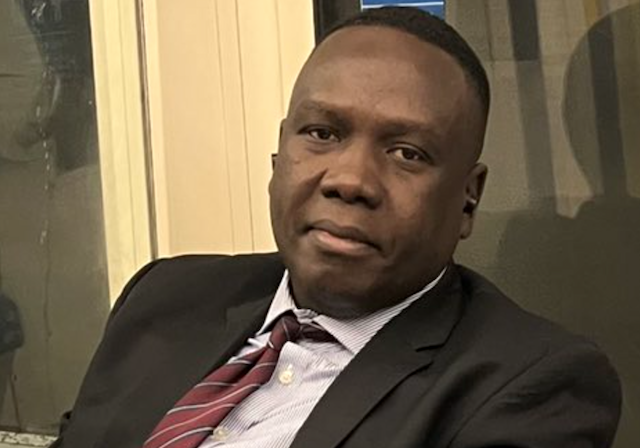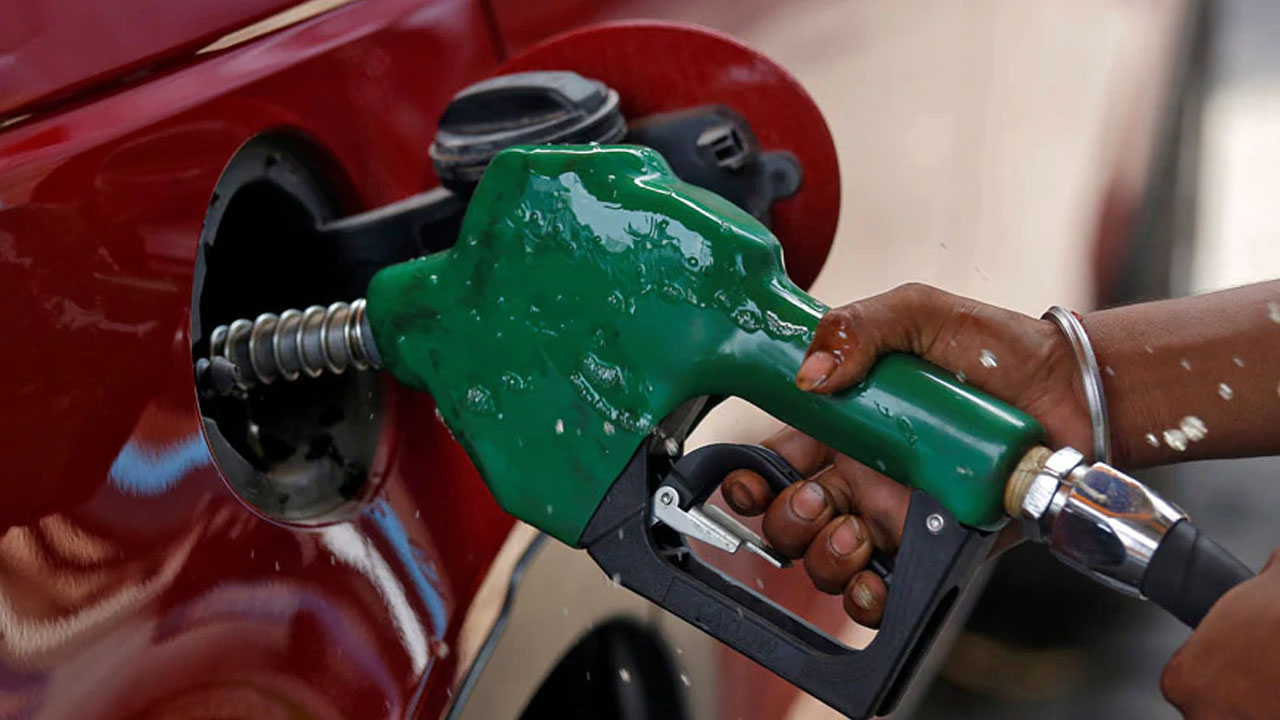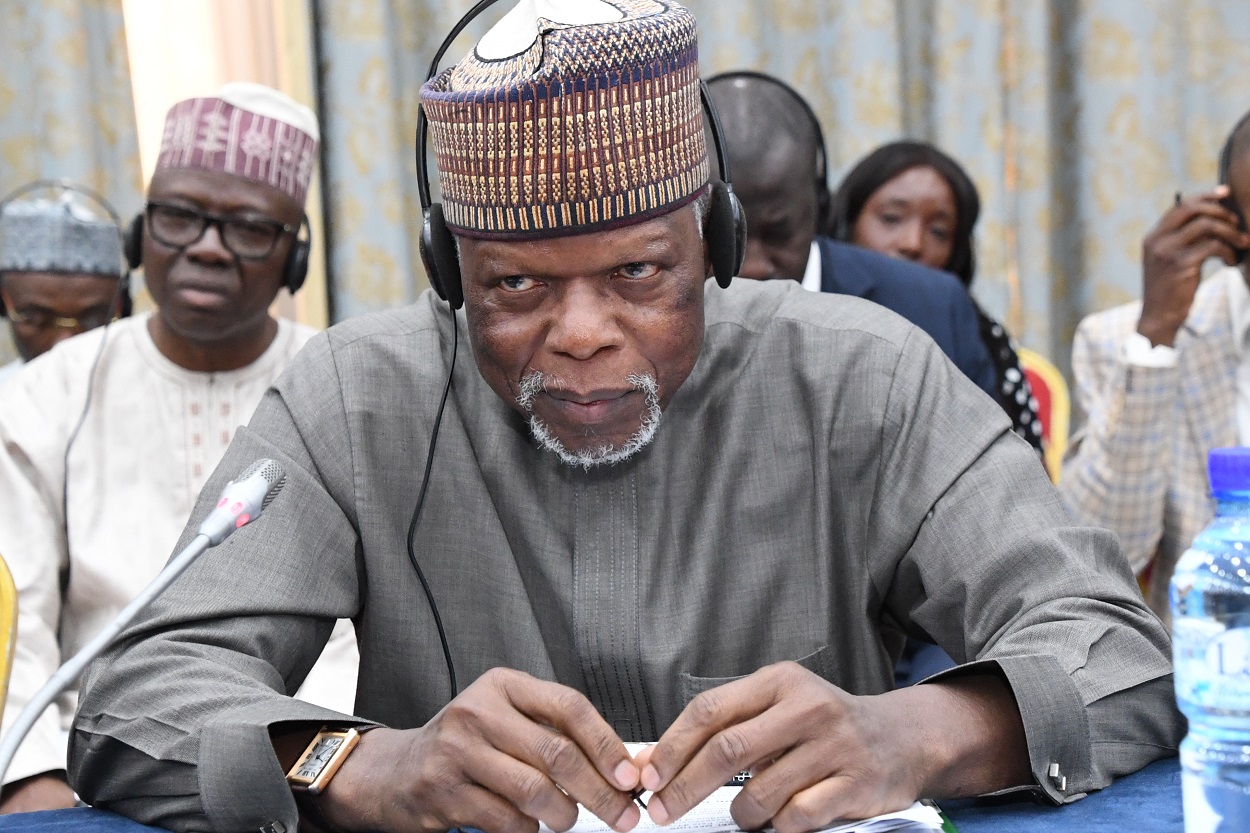News
Subsidy: Marketers Call for Clarity as Ex-Depot Price Surpasses Pump Price
Although the Federal Government declared the termination of the petrol subsidy and a subsequent increase in its price by over 400%, there are speculations that they might covertly be compensating product marketers to keep the current pump price stable.
During his inaugural address on Monday, May 29, 2023, President Bola Tinubu proclaimed the end of subsidy payments for Premium Motor Spirit, commonly known as petrol. This statement immediately propelled the pump price from N189 to around N500.
Currently, petrol is priced between N568 and N617 across various regions of the country. This variation is attributed by government officials and NNPC Limited to foreign exchange fluctuations, given that the product is solely imported.
Saturday PUNCH gathered that the ex-depot price of petrol stood at N580 per litre in Lagos on Thursday and that after adding the cost of conveying it to filling stations and the marketers’ profit margin, it ought to sell for between N620 and N630 per litre. The difference, however, represents the subsidy that the government is surreptitiously bearing despite the fact that there is no budget for that.
It was learnt that jolted by the negative reactions that had been trailing its economic policies, including the astronomical surge in the cost of living occasioned by the removal of fuel subsidy and the floating of the naira, coupled with a possible backlash if the pump price of petrol rose further, the Tinubu administration decided to peg the price at the current rates and instead opted to accommodate some form of subsidy.
A close aide of the President told Saturday PUNCH on condition of anonymity that the administration was scared of losing what remained of its goodwill and support base due to the excruciating pain Nigerians were currently suffering as a result of the President’s policies and their effects on the masses.
The source said, “Ordinarily, the government ought not to be involved in fixing the pump price of petrol in a deregulated economy just as it is with diesel and kerosene, but when we realised how the removal of subsidy on petrol has thrown the citizens into poverty and how fast the administration is losing credibility and goodwill, we had to put on our thinking caps.
“The security reports we are getting are not favourable at all. There is a high probability that there may soon be civil unrest and escalated tension as the citizens have been pushed to the wall. There are indications that the organised labour, civil society and the opposition are planning to plunge the country into a spontaneous crisis that may snowball into protests that if care is not taken may threaten the stability of the government.
“Don’t forget that the election that brought President Tinubu in is still being vigorously challenged by opposition parties, who are mounting massive pressure on the judiciary to overturn the result. Any protest at this time will not augur well for the administration as it will be difficult to contain and may be hijacked by the opposition, and if the presidential election petition tribunal orders a rerun or cancellation of the election for a fresh one to take place, you can imagine what will happen to the Tinubu presidency.
“Yes, the NNPCL and marketers gave feedback about what the ideal pump price of petrol should be, but we reasoned that any further increase will be catastrophic and ignite spontaneous protests nationwide. It will be suicidal for us to watch that happening.”
The Presidency source revealed that this informed the decision of the NNPCL to secure a $3bn crude repayment loan on Wednesday to support the naira and stabilise the foreign exchange market.
The NNPC said in a statement that the commitment letter, which was signed at AFREXIM Bank’s headquarters in Cairo, Egypt, would enable it to support the Federal Government in its ongoing fiscal and monetary policy reforms aimed at stabilising the exchange rate market.
The company tweeted, “The NNPC Limited and @afreximbank have jointly signed a commitment letter and Term Sheet for an emergency $3 billion crude oil repayment loan.
“The signing, which took place today at the bank’s headquarters in Cairo, Egypt, will provide some immediate disbursement that will enable the NNPC Ltd. to support the Federal Government in its ongoing fiscal and monetary policy reforms aimed at stabilising the exchange rate market.”
The President’s aide explained that the initiative was expected to strengthen the naira and lead to a reduction in fuel costs.
“This means that if the naira appreciates in value, the cost of fuel will drop, and further increases will be halted and there won’t be any need to pay subsidy on the product,” the aide added.
An official of a fuel marketing firm, who spoke to one of our correspondents on Friday, however, insisted that the government was paying subsidy on petrol.
The official, who pleaded not to be identified because of the sensitive nature of the subject, said when the firm brought in the first shipment of its imported petrol after the government liberalised the fuel importation market, the pump price was N617 per litre, but its filling stations were forced to sell at N565.
He said, “Is it not obvious that the government has resumed subsidy payment? No company will bring in petrol and after adding the shipment cost, insurance cost, bridging gap and profit margin and the pump price adds up to N617 and now sells at N565. The government is not telling Nigerians the truth.
“Our ex-depot price as of Monday was N575 and by Thursday, it had jumped to N580. Ideally, we should be selling above N600, say N620 per litre in Lagos, but the Federal Government is saying we can’t increase the pump price, so who pays the differential?
“The business is no longer profitable and that is why a lot of independent marketers are abandoning their filling stations and selling them to major marketers, which have the resources to absorb some of the unexpected volatility.
“Before subsidy removal, it used to cost a tanker about N5m to lift petrol from the depot, but now, the price has jumped to about N25m and the profit margin on that is just around N300,000. So, it is not an encouraging business at the moment.”
The marketers had said on Sunday that the price would rise to between N680/litre and N720/litre in the coming weeks should the dollar continue to trade at N950 in the parallel market.
They also hinted that dealers seeking to import PMS were being forced to put the plans on hold due to the scarcity of foreign exchange to import the commodity.
The warning came barely one week after the local currency crossed the N900/dollar ceiling, with the naira selling at over 945/dollar at the parallel market last Friday.
Oil dealers said the Central Bank of Nigeria’s Importers and Exporters official window for foreign exchange had remained illiquid and unable to provide the $25m to $30m required for the importation of PMS by dealers.
The marketers had in June projected that the pump price of petrol could rise above N700 per litre in the northern part of the country starting from July.
National Controller Operations, Independent Petroleum Marketers Association of Nigeria, Mike Osatuyi, had told The PUNCH that the price could rise to above N700 in the North once independent marketers started importing products.
He said while those living in the northern states could pay as much as N700 and above for one litre of petrol, those outside Lagos should expect to pay around N610, while Lagos residents would pay about N600 per litre.
“What I am seeing is around N600 and above, depending on the exchange rate, the current crude price at the international market and the landing cost. Those in Lagos will pay around N600, those outside Lagos around N600 plus, while those in the North will be paying anything from N700 and above,” he said.
Similarly, a former Chairman of the Major Oil Marketers Association of Nigeria and Chief Executive Officer/Chairman of 11 Plc, Tunji Oyebanji, said consumers should expect new pump prices close to that of diesel, and those of neighbouring African countries that also import petrol.
By coming out to declare that the pump price of petrol will not rise above the N617/litre approved cost, the Federal Government has indirectly reinstated fuel subsidy, oil marketers stated on Friday.
Dealers of the commodity also asked the Federal Government to come out clean with respect to fuel subsidy, instead of mandating oil marketers not to dispense the product above a stipulated band.
The Special Adviser to the President on Media and Publicity, Ajuri Ngelale, had told State House correspondents on Tuesday that the President had instructed that the cost of petrol should not increase.
“Mr President wishes to assure Nigerians following the announcement by the NNPC Limited just yesterday (Monday) that there will be no increase in the pump price of PMS anywhere in the country. We repeat, the President affirms that there will be no increase in the pump price of PMS,” he said.
The NNPCL had on Monday spoken up on the widespread concern of a possible hike in the pump price of petrol.
“Dear esteemed customers, we at (the) NNPC Retail value your patronage and we do not have the intention to increase our PMS pump prices as widely speculated. Please buy the best quality products at the most affordable prices at our NNPC Retail stations nationwide,” the company had stated.
NNPC Retail is the downstream subsidiary of NNPCL that retails refined petroleum products for the group.
Recall that oil marketers had on Sunday indicated that the cost of petrol would rise to between N680/litre and N720/litre in the coming weeks should the spike in the exchange rate persist.
But the National Secretary, Independent Petroleum Marketers Association of Nigeria, Chief John Kekeocha, explained on Friday that the decision of the Federal Government to put a cap on petrol price meant that subsidy on the product had been reinstated.
He said, “The government is not being very transparent with this issue. When you say you have removed fuel subsidy, you don’t come again and moderate prices. It is like speaking with the two sides of the mouth.
“Removal of subsidy means you have removed your hands and the prices have to follow demand and supply. So if the NNPC says it is getting forex (foreign exchange) to import products and reduce prices for marketers, are they going to do the same for other importers? Remember that the government gave import licences to about seven marketers?
“Are they still going to moderate prices for those people when they bring in the product? No! You don’t blow hot and cold at the same time. There is no way they can bring in the product and reduce the price and peg it for marketers to sell at a certain level; it means they are indirectly bringing back subsidy.
“If they want to bring back subsidy, let them say it openly that we are going to come back to subsidy because of the pains the country generally is going through. This is because the initial things they are supposed to do they did not do. We have always been clamouring, let the refineries work.”
Kekeocha added that IPMAN and other dealers had advised the government to get the refineries running before removing subsidy, stressing that the country would not be facing this hardship had the government listened to the marketers.
He stated, “Let the three refineries in the country work. They (the government) didn’t do that, they just came in and jumped into the removal of subsidy and put everybody into a crisis. They should do the needful.
“The NNPC is synonymous with the Federal Government and so, if the government wants to bring back subsidy, they should say it openly. If they bring in the product, for instance at N10 and they sell it to marketers at N8, then they have subsidised the product by N2.
“Therefore, they will now say to marketers, don’t sell more than this price, which means they have reinstated fuel subsidy and will now send the Nigerian Midstream and Downstream Petroleum Regulatory Authority to monitor prices at filling stations.”
Commenting on the $3bn recently loan secured by NNPCL from Afrexim Bank, Kekeocha said, “If you bring forex and make it cheaper and bring products and now fix the price, it means you are going to monitor marketers, because you are going to make retailers to sell within a price band.
“Anybody who sells above it means he is going against the law; this is a reinstatement of subsidy.”
Also speaking on the issue, the Secretary, IPMAN, Abuja-Suleja, Mohammed Shuaibu, said the ex-depot price of PMS in Warri as of Friday was N585/litre, while that of diesel was N820/litre and aviation fuel was N800/litre.
Shuaibu stated, “These are the prices of the products at the depots and not at filling stations. The pump price for petrol, of course, should be around N600/litre in Warri and neighbouring states, but should be higher than that in Abuja and the northern states, because these locations are far from Warri.
“There are no functional depots in Abuja and the North because all the pipelines supplying products to the region have been vandalised. However, we know that if the NNPC should sell petrol based on the forex rates in Nigeria, the cost should be much higher.”
The spokesperson, NNPCL, Garba-Deen Muhammad, could not be reached for comments as he did not respond to calls and messages sent to his mobile phone.
On his part, the President, Petroleum Products Retail Outlets’ Owners Association of Nigeria, Billy Gillis-Harry, explained that in practical terms, one would say subsidy on petrol had returned.
He, however, stated that what the Presidency said about the issue should be taken to be true.
Ngelale had during his media briefing on Tuesday stated that the government would not increase petrol price and would not return subsidy.
Gillis-Harry said, “We heard the President’s firm commitment to keeping deregulation on stream and also ensuring the sustenance of subsidy removal. One would say there is subsidy, going by the rising forex and crude oil prices, but since the President said there is no return of subsidy, let’s take it that way.”
But the National Public Relations Officer, IPMAN, Chief Chinedu Ukadike, insisted that subsidy on petrol was being returned gradually.
Ukadike said, “You can also see the analysis that was made by the Presidency with the cost of the product in neighbouring countries, as well as in the international market. It said no country is selling non-subsidised petrol at N617/litre.
“But that is not a qualitative analysis. You will talk about the purchasing power of your own currency as it were. In Ghana, a bottle of Coke is about N400, but it is about N200 in Nigeria. You won’t say because it is N400 in Ghana, Nigerians should also buy it at N400.
“So, that analogy by the Presidency in stating that petrol is cheaper here is not entirely correct. This takes us to the importance of domestic refining, which will enable us to check the demand for dollars and importation of petroleum products.
“If we actually want full deregulation, there must be local production that will check the rise in dollar. For once the dollar is rising, there’s nothing you can do to stop the simultaneous rise in petrol price.
“If not, it means the Federal Government is subsidising petroleum products, which implies that subsidy has indirectly returned.”
Ukadike insisted that the pump price of petrol should be around N680 going by the prevalent exchange rate and the price of crude oil.
He said, “With a template of N554/litre landing or ex-depot cost at the time when one dollar was N750, if you analyse and work out the arithmetic, you will find out that the current pump price of PMS should be around N680/litre now that the dollar is hitting over N850/litre.
“So what we are experiencing now is quasi or semi subsidy, but the government may not want to admit it.”
The Chief Executive, Nigerian Midstream and Downstream Petroleum Regulatory Authority, Farouk Ahmed, had said that going forward, the market would dictate the pump price of PMS as the agency would no longer fix prices or release templates for petrol.
Addressing a press conference in Abuja, Ahmed said market forces would henceforth dictate prices under the liberalised market.
He also disclosed that the Federal Government had scrapped the Petroleum Equalisation Fund as well as the national transport allowance.
The PEF was set up to ensure price uniformity of petroleum products via the reimbursement of marketers for losses they incur in trucking products from depots to their filling stations anywhere in Nigeria.
Similarly, the Senior Special Assistant to the President on Media and Publicity, Tope Ajayi, on Tuesday said there were no plans to reintroduce fuel subsidy.
Ajayi made the assertion on X formerly known as Twitter, at 6.08 pm WAT.
He said, “There is no plan to reintroduce any form of fuel subsidy. There is no condition to support any increase in prices at this time. President Tinubu is convinced based on information before him that we can maintain (the) current pricing without reversing the current deregulation policy by swiftly cleaning up existing inefficiencies within the midstream and downstream petroleum sector(s).”





